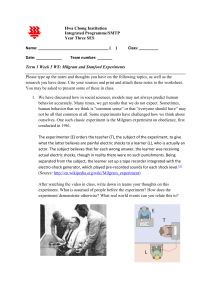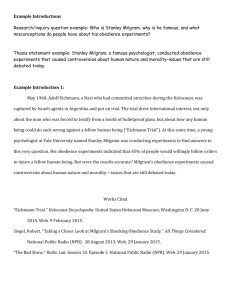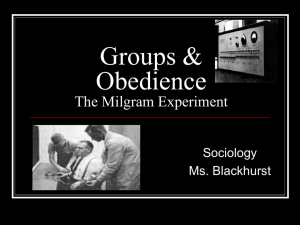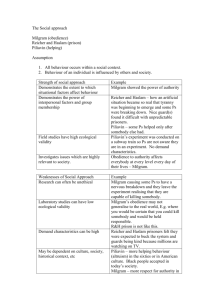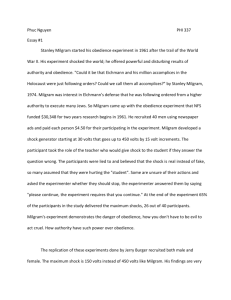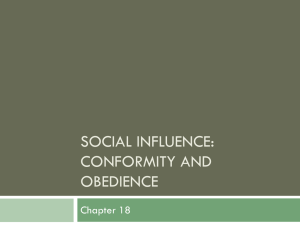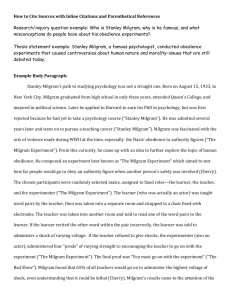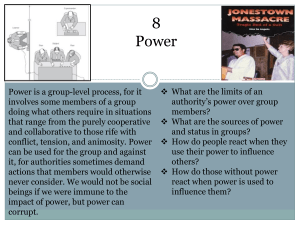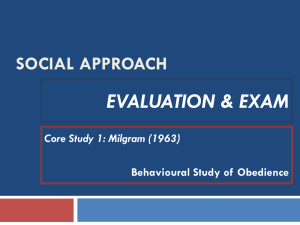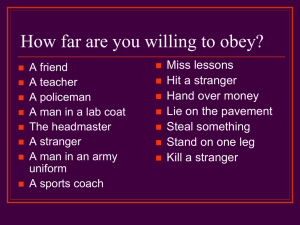Revision: Milgram`s obedience studies
advertisement
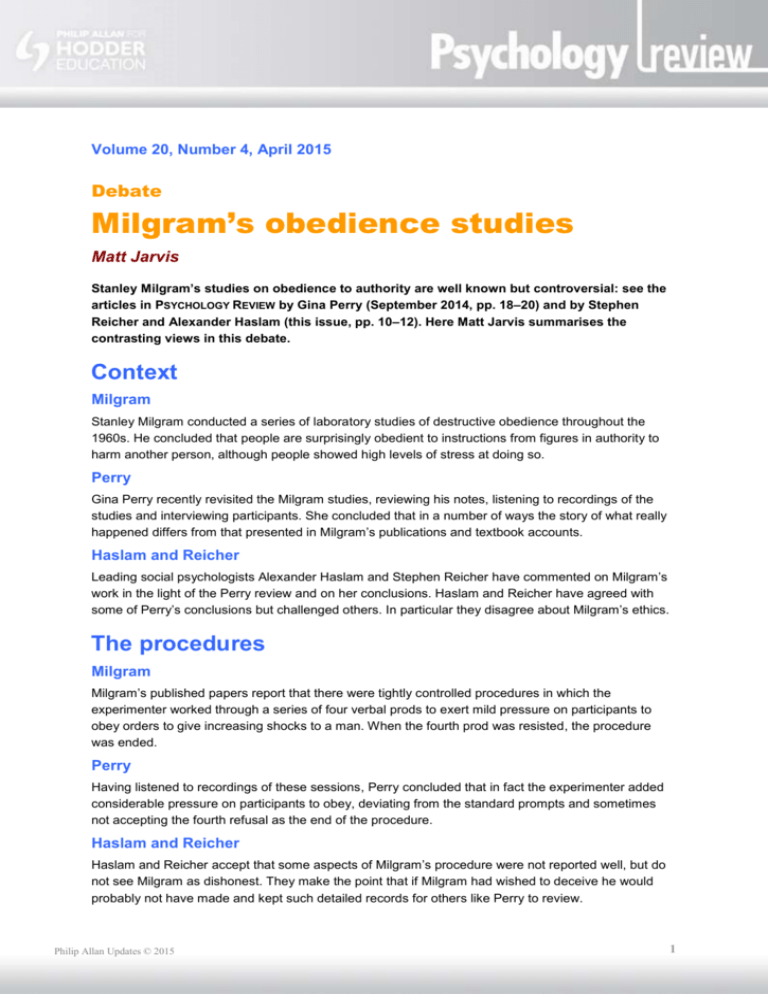
Volume 20, Number 4, April 2015 Debate Milgram’s obedience studies Matt Jarvis Stanley Milgram’s studies on obedience to authority are well known but controversial: see the articles in PSYCHOLOGY REVIEW by Gina Perry (September 2014, pp. 18–20) and by Stephen Reicher and Alexander Haslam (this issue, pp. 10–12). Here Matt Jarvis summarises the contrasting views in this debate. Context Milgram Stanley Milgram conducted a series of laboratory studies of destructive obedience throughout the 1960s. He concluded that people are surprisingly obedient to instructions from figures in authority to harm another person, although people showed high levels of stress at doing so. Perry Gina Perry recently revisited the Milgram studies, reviewing his notes, listening to recordings of the studies and interviewing participants. She concluded that in a number of ways the story of what really happened differs from that presented in Milgram’s publications and textbook accounts. Haslam and Reicher Leading social psychologists Alexander Haslam and Stephen Reicher have commented on Milgram’s work in the light of the Perry review and on her conclusions. Haslam and Reicher have agreed with some of Perry’s conclusions but challenged others. In particular they disagree about Milgram’s ethics. The procedures Milgram Milgram’s published papers report that there were tightly controlled procedures in which the experimenter worked through a series of four verbal prods to exert mild pressure on participants to obey orders to give increasing shocks to a man. When the fourth prod was resisted, the procedure was ended. Perry Having listened to recordings of these sessions, Perry concluded that in fact the experimenter added considerable pressure on participants to obey, deviating from the standard prompts and sometimes not accepting the fourth refusal as the end of the procedure. Haslam and Reicher Haslam and Reicher accept that some aspects of Milgram’s procedure were not reported well, but do not see Milgram as dishonest. They make the point that if Milgram had wished to deceive he would probably not have made and kept such detailed records for others like Perry to review. Philip Allan Updates © 2015 1 The conclusions Milgram Milgram concluded that participants were surprisingly obedient and that they suffered distress at the situation. Milgram believed participants really thought that they were seriously harming someone but saw no alternative to obeying. Perry Perry challenged Milgram’s conclusions. She found evidence in the archives of several participants questioning whether the procedure was real and whether their administering shocks was actually hurting participants. Haslam and Reicher Haslam and Reicher point out that there is little doubt that participants experienced distress during the procedure. This suggests they did believe the situation was genuine. Haslam and Reicher do not accept all Milgram’s conclusions about obedience but they do accept that Milgram’s participants believed they were hurting someone. Ethical issues Milgram Milgram argued that participants only suffered short-term distress, and that he had made sure they were in a good psychological state when they completed the procedure. He also reported that when surveyed, the vast majority of participants were glad to have taken part. Perry Perry found evidence in Milgram’s archives to suggest that actually many of Milgram’s participants were traumatised by their experience. There was also evidence to suggest that many were not immediately debriefed, some waiting almost a year before finding they had not in fact really harmed anyone. Haslam and Reicher Haslam and Reicher agree that although Milgram was a competent researcher there are questions over his ethics. In addition to the distress Milgram caused his participants, they also raise another issue: he encouraged participants to believe that it is acceptable to cause distress for the sake of science. This resource is part of PSYCHOLOGY REVIEW, a magazine written for A-level students by subject experts. To subscribe to the full magazine go to www.hoddereducation.co.uk/psychologyreview Philip Allan Updates © 2015 2
